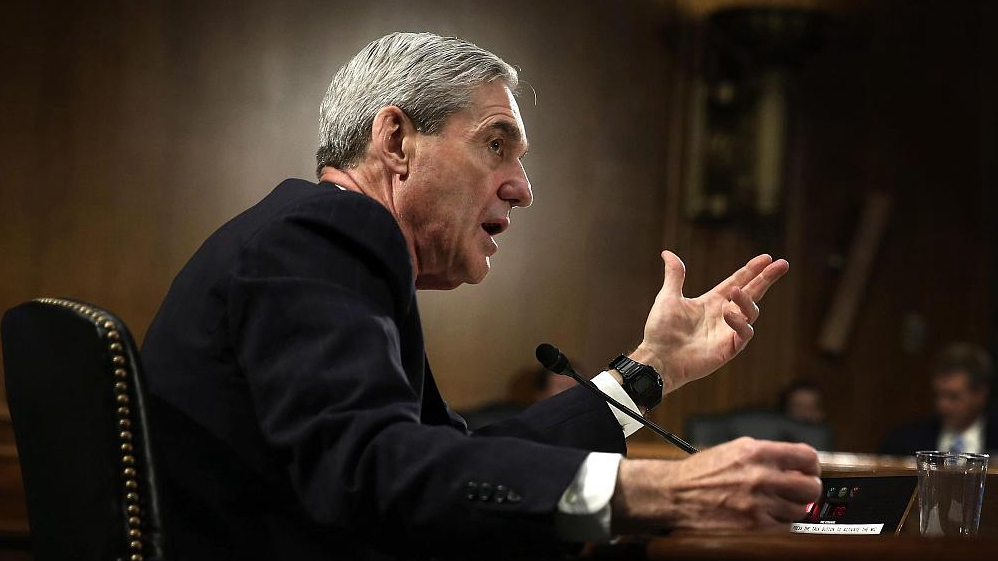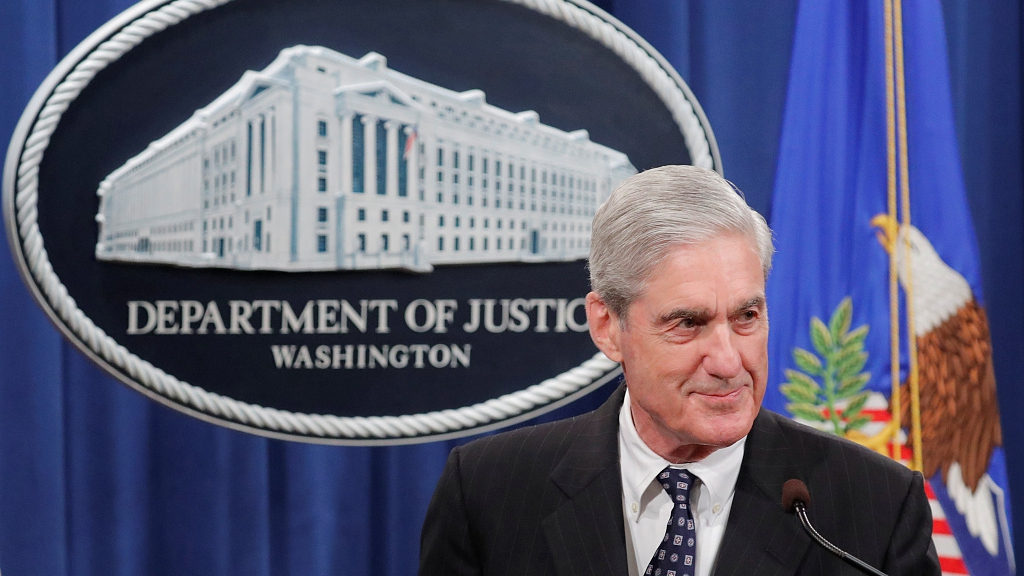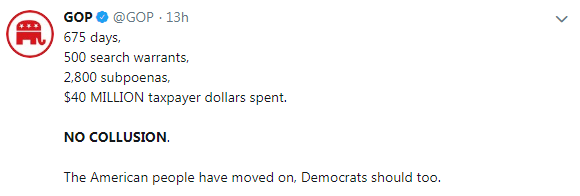

Robert Mueller, the former special counsel who investigated possible links between the Trump 2016 campaign and Russia, will give evidence on his 448-page report in front of the House judiciary and intelligence committees on Wednesday.
The blockbuster Mueller hearings are likely to be defining events of the Trump presidency.
The Mueller investigation revealed contacts between Donald Trump's campaign and Russian officials, but did not determine a criminal conspiracy had occurred. The report also documented attempts by President Trump to try to impede the special counsel's probe, but reached no conclusion on whether the president had obstructed justice.
Democrats see the hearings as an opportunity to push the case for impeachment and sway public opinion in the run-up to the 2020 election, while Republicans are likely to use their questions to attack the basis of the Mueller report. Here are five talking points ahead of the hearings:

Robert Mueller delivers a statement on his investigation into the 2016 U.S. presidential election at the Justice Department in Washington, May 29, 2019. /VCG Photo
1. How far will Mueller go?
Mueller didn't want to appear before Congress, and as a vastly experienced prosecutor and lawman is unlikely to be rattled into saying anything he doesn't want to. After staying silent for almost the entirety of the near two-year investigation, the former FBI director is a reluctant witness. He explicitly warned that if called to give evidence he would not go beyond what is written in the report, describing it as his testimony, and the Department of Justice has also directed Mueller to restrict answers to within the bounds of the report submitted in March.

Twitter Screenshot
However the 74-year-old, who is expected to be flanked by his deputy, Aaron Zebley, in a last-minute twist that his irritated Trump and will add an unexpected dimension to the proceedings, may be willing to clarify elements of the report, repeat key findings which haven't widespread coverage, and, if attacked, hit back.
2. No collusion, total exoneration?
Trump has turned "no collusion, no obstruction, total exoneration" into a catchphrase, wheeled out in tweets, campaign rallies and press conferences – but it isn't what Mueller concluded. He explicitly wrote three times in the report that the investigation did not exonerate Trump and added in a news conference on May 29, "if we had had confidence that the president did not commit a crime, we would have said so."

Twitter Screenshot
However, neither did the investigation find that Trump would have been charged with a crime had he not been president, as some Democrats have claimed. The Democrats will look for clarification on this and whether Mueller intended Congress to take up his probe into possible obstruction of justice. Both sides will be looking for soundbites to back up or oppose the Trump claim.
3. The Barr spin summary
Attorney General Bill Barr released a four-page summary of Mueller's findings which did much to shape public opinion before the full report was released in April. Mueller later sent a letter to Barr, which was released to the press, arguing that the Barr summary did not "fully capture the context, nature, and substance" of the investigation.

Twitter Screenshot
Democrats argued that Barr, who has been held in contempt by the House, mischaracterized the report, with some going as far as accusing Barr of flat out lying in order to create a narrative favorable to the president. The former special counsel is likely to face questions about his relationship with the Justice Department, and particularly Barr's handling of the report's release.
4. Democrat tactics
The Democrats are hoping to draw out some of the key points of the Mueller report on camera. The assumption is that the damning details of the investigation have not seeped into the public consciousness, but a blockbuster political hearing likely to lead the news cycle and dominate social media may break through. The Democratic representatives are also likely to try to lure Mueller into revealing details of the investigation not in the report, something the former FBI director has said he is not willing to do.

Twitter Screenshot
But there may be areas of clarification that he is willing to speak to, for example, the reasons for not pursuing an obstruction of justice charge and the instances the Mueller team uncovered in which Trump tried to impede the investigation. The Democrats will hope the hearing produces soundbites which will help shift public opinion on impeachment, and slot into campaign ads ahead of the 2020 election.
5. Republican tactics
The Republicans on the committees are likely to attack the credibility of the report and the basis for the investigation itself, following talking points set out by Trump over the past two years. The role of former FBI director James Comey, the notorious dossier composed by former British spy Christopher Steele, and the anti-Trump text messages of former FBI agent Peter Strzok are likely to come up, along with the president's repeated claim that the probe was a "witch-hunt."

Twitter Screenshot
The committees include some longstanding Republican critics of Mueller who may be tempted to directly criticize the former special counsel, who Trump has accused of conflicts of interest. Such a tactic would be risky – Mueller seems determined to stay above the political fray and avoided responses to an array of criticisms during the investigation, but direct attacks would be a different test.

Copyright © 2018 CGTN. Beijing ICP prepared NO.16065310-3
Copyright © 2018 CGTN. Beijing ICP prepared NO.16065310-3